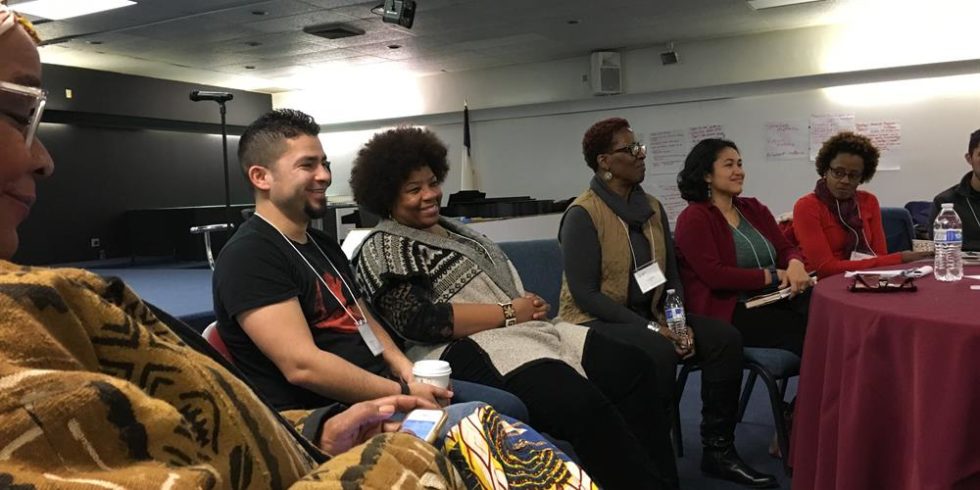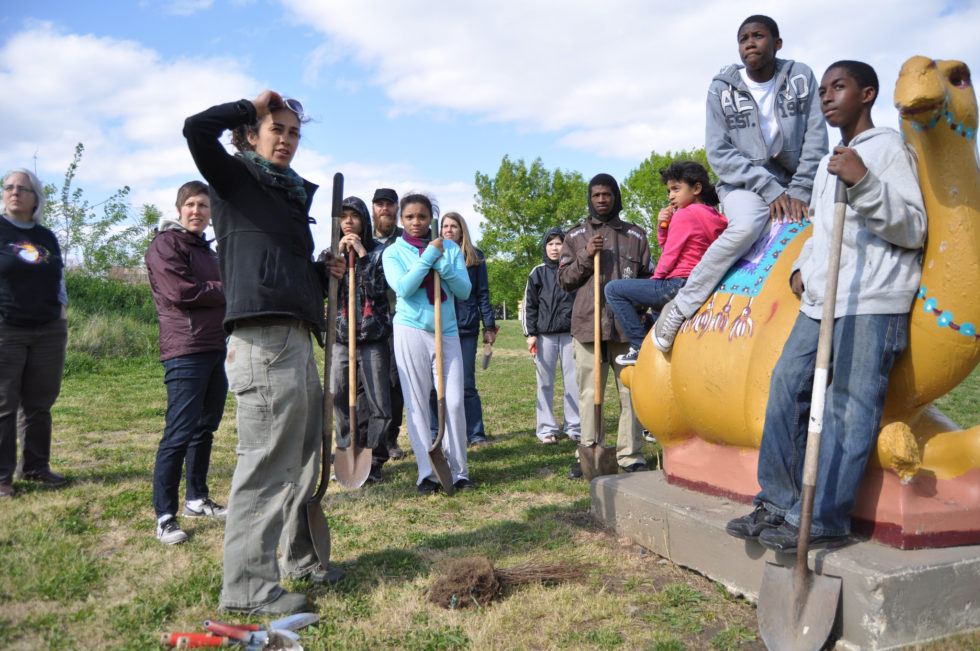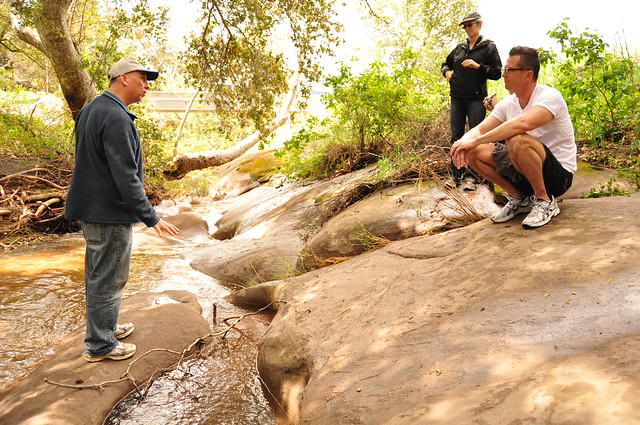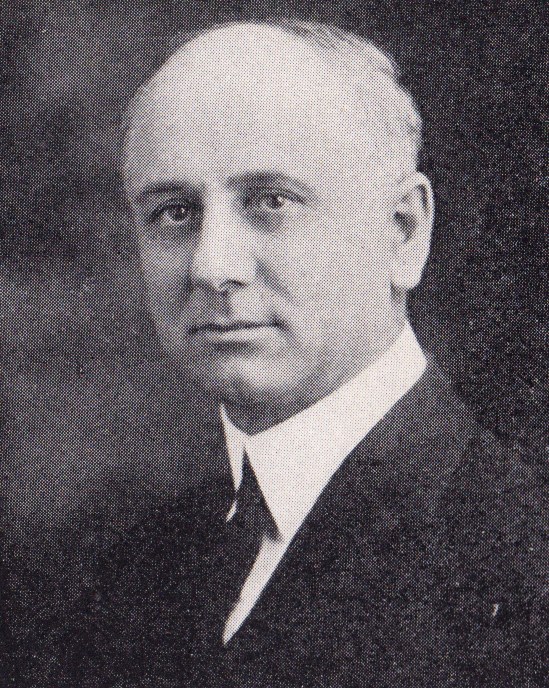
This essay was originally published in Anabaptist World in July 2022 as Quilts and Power: What Malcolm Gladwell is missing about Mennonites
On June 22, author and speaker Malcolm Gladwell published an essay on his participation in a Mennonite wedding in the town where he grew up in southern Ontario. Gladwell opens the piece by summarizing his previous coverage of Mennonites and expressing his deep affection for our community.
Gladwell writes enthusiastically that Mennonites are a “low power distance” culture. Power distance is a term from sociology that refers to the extent to which people of low status accept unequal distribution of power. In other words, Gladwell is saying Mennonites are wary of hierarchy. He says we have abandoned “the aggressive pursuit of status markers.”
Resisting political domination and illegitimate authority are at the core of Anabaptism. However, Gladwell’s public relations campaign on our behalf is problematic. Here’s why: Mennonites do have status markers, they are just different (sometimes) from those of dominant culture in the U.S. and Canada. If you advertise Mennonites as having no status markers, you set up false expectations that will lead to disillusionment by people who start attending Mennonite churches. (more…)
TimN
August 27, 2023
Mennonite Church USA, Politics, Power, Privilege
Read more >

Photo: Participants at the February 2017 Hope for the Future gatherings. From left to right: Rafael Barahona, Calenthia Dowdy, Ann Jacobs, Evelin Gonzalez and Colleen Whigham-Brockington. Photo by Jenny Perez Castro.
This piece was originally published in June 2017 in The Mennonite magazine.
It’s been seven months since I last wrote in this space about the results of the U.S. presidential election. Since then the broader shape of Trumpism has become clearer: there is a growing wave of misogynist and openly white supremacist groups in the United States that are emboldened to target women, Muslims, immigrants, black people and many others.
For many of us who are white, this feels new and different, but for peoples indigenous to this continent and for people of color, this is simply a highly visible form of what they’ve faced for a long time. My friend Dr. Joe Pruitt recently told me the story of his father, a black man, who fled the south after he received lynching threats due to his friendliness with white women. Closer to home and more recently, my friend Raul Lopez talked about visiting the Ojai valley in California, where I live. As a young man (10 years ago), he and his friends were followed around by white men in white pickup trucks who made it very clear he that he and his friends were not welcome. That hatred is invisible to me as a white person. (more…)
TimN
February 15, 2021
antiracism, Mennonite Church USA, Peace & Peacemaking
Read more >

This blog post was originally published on my blog for The Mennonite two years ago.
In his address to graduating students at Eastern Mennonite University (EMU) on May 2, President Loren Swartzendruber complained about social media. On May 2, the Daily News-Record quoted him:
“Here’s the challenge we face,” he said, “namely the question of how we engage in meaningful, life-changing, civil conversations in a world that’s impatient for quick answers … and is all-too ready to vilify those who disagree.”
He said important discussions “are extremely difficult to conduct via social media,” and require intra-personal relationships.
There’s plenty of reasons to be concerned about social media, but there’s a story and a pattern behind this complaint that needs a closer look. Swartzendruber’s critique comes after months of pressure on his administration around its handling of Luke Hartman’s employment at EMU. Social media played an important role in that pressure.
(more…)
TimN
August 23, 2018
Institutions, Mennonite Church USA, Power, sexual abuse, Social Media, Technology
Read more >

This post was originally published on my blog for The Mennonite two years ago.
On Sunday, March 6, 2016, Ruth Krall wrote “A Considered Response to Lambelet and Hamilton: Vis-Ã -vis the topic of being made invisible…one more time” on her repeated experience of invisibilization by male Mennonite colleagues who pigeonhole her as a “very angry woman who hates the church.” She outlines a series of other ways in which both male and female scholars perpetuate male supremacy from ignoring feminist work to ridiculing it.
Krall isn’t alone in this experiencing this silencing. In the comments on Krall’s article, Mennonite pastor Sylvia Krauser describers her own experience of having her academic career buried by male scholars. Last year George Dupuy wrote for this publication about his experience of silencing by the Virginia Conference of Mennonite Church USA. There are many many stories of silencing of queer folks by Mennonite leaders, most recently Mennonite Central Committee worker Wendi O’Neal. I wrote in October about the way Moderate Mennonite Male Managers seek to control and manage marginalized people. Carol Wise, director of Brethren Mennonite Council for LGBT Interests, names this dynamic as a “deep resistance to including the experience and voices of those most impacted by harmful exercises of power.”
(more…)
TimN
May 20, 2018
Mennonite Church USA, Sexism
Read more >

This post was originally published two years ago as MMMMs: Expanding our Churchly imagination in my blog for The Mennonite. Thanks to Hannah Heinzekehr for adding photos to illustrate this piece.
In the wake of this summer’s Mennonite Church USA convention and the pending departure of Lancaster Conference, I am reflecting on the role of “Moderate Mennonite Male Managers” (MMMM’s) in our institutions. This recent essay by John Rempel inspired me to look specifically at a blind spot common among the the “Moderate Mennonite Male Managers” (MMMM’s) of our institutions. For those of you who haven’t read it, this quote summarizes Rempel’s thesis well:
Each type of church brings different gifts to the table. Moderates bring the willingness and capacity for meaningful compromise. Liberals bring the capacity to live with ambiguity and with matters that are presently incapable of solution. Conservatives bring a deep trust in the Bible and the Holy Spirit as sources of clear positions in matters of faith and life.
I resonate with Rempel’s 1 Corinthians 12 inspired vision of the different gifts of the body of Christ that he outlines. However, Rempel’s paradigm, focused around liberals, moderates and conservatives, misses a whole swath of our community and Anabaptist tradition.
To understand more about this missing community, I turn to the model of four streams of Anabaptism that Rodney Sawatsky outlined in 1992. In summary, he traces four contemporary streams of Anabaptism back to our 15th century origins: Separationist, Establishment, Reformist and Transformationist. I will focus in this article on the transformationist, but you can see Sawatsky’s table with all four in my 2007 blog post. These streams do not map perfectly onto Rempel’s model of liberals, moderates and conservatives, but however you slice the cantaloupe, the transformationist stream is glaringly absent.
(more…)
TimN
October 27, 2017
Four Streams of Anabaptism Series, Group Identity, Institutions, Mennonite Church USA, Power, Privilege, Race, Sexismbureaucracy
Read more >

I published this interview with Leah Wenger two years ago today on my blog for The Mennonite under the title Moving beyond the belittlement of the youth: An interview with Leah Wenger. Glen Guyton and other Mennonite Church USA convention staff rose to Leah’s challenge and worked with Leah and others to launch the Step Up program at the convention in Orlando this past summer that invited 3 youth from each Mennonite conference to the delegate assembly.
1. What led you to attend the Mennonite convention in Kansas City?
I have always loved spending time with my youth group, and that was one of the main things I was looking forward to in going to Kansas City 2015. I love spending time with this group of people that I would not hang out with normally. We are truly a group with no judgment, and always have been, so I never feel like I have to be someone else. We have such a strong connection as youth at CMC, and I was looking forward to building that connection throughout the week.
I was also looking forward to simply being in the Mennonite realm for a week. I was excited to be together with all these people as so many different parts of the same body of Christ. I wanted to be there to renew my faith in God and in the Mennonite church, and to remind myself about how incredible of a privilege it is to be a part of a family of faith such as this. I wanted to find a place where I felt the spirit moving in a large way.
(more…)
TimN
September 4, 2017
Mennonite Church USA, Young Folksrepresentation
Read more >

This interview, originally published two years ago, was the eighth interview in my ongoing Anabaptist Camp Follower series in which I interview people who have been drawn to Anabaptism and Mennonites. Kelly Bates Oglesby is pastor at Park View Mennonite Church in Kokomo, Ind. Our interview happened before the massacre of nine Black Christians in Charleston on June 17. That act makes her words all the more important.
Can you share about your journey with Mennonite Church USA and becoming pastor at Parkview Mennonite Church?
As a requirement of my seminary study I needed to complete an internship in a faith community that was dissimilar from my own. As I perused the available openings I was drawn to one at First Mennonite Church in Indianapolis. The Mennonite setting was certainly dissimilar from my Free Will Baptist tradition even though both are Anabaptist in grounding.
Until I came to seminary and met Dr. Wilma Bailey, I had no personal interactions with Black Mennonites. My discussions with her and observations of her had piqued my interest. I submitted my application to First Mennonite Church and completed the process to become an intern. Unlike some learning sites, FMC wanted me to learn about the congregation and conference. Moreover, they allowed me to experience and experiment with ministry development.
During my initial year, I met weekly with the lead pastor to discuss theology and polity. Regular small group interactions helped me to learn to know the congregation. As part of my student work I initiated a project each semester to broaden the ecumenical witness of the congregation.
At the end of my first year, I was invited to complete my second internship year with the congregation. This was thrilling and concerning: I realized I was beginning to feel at home.
(more…)
TimN
July 24, 2017
Anabaptist Camp Followers, Mennonite Church USA, Privilege, Race
Read more >

This blog post was originally published two years ago soon after the launch of the Evana Network
On April 13, 2015 the Evana Network officially announced its new name and its first staff person, John Troyer, in The Mennonite.
For those who haven’t been following things, the Evana Network may simply be a network of churches inside and outside Mennonite Church USA that is not a denomination, according to Mennonite World Review, or it may be a “conservative alternative to the Mennonite Church USA,” according to Christianity Today.
Open Book Communications, which Evana hired to help with its branding, originally described it as “a new denominational home for Mennonites and Anabaptists” that sought to “position [itself] in the denominational landscape around them” (see archive of page on Wayback machine).
After I shared the page in the Mennonerds Facebook group, Troyer asked Open Book to change the language in its page to language that emphasized community building more than branding.
The ambiguity is intentional.
(more…)
TimN
July 16, 2017
Exclusion, LGBTQ, Mennonite Church USA
Read more >
Editor’s Note: 10 years ago, we kicked off this blog. Over the coming months, we’ll be hosting a series of posts reflecting back on the last 10 years. Thanks to Tom Airey, co-editor of our sister blog, RadicalDiscipleship.net for this second post in this series. – Tim Nafziger

Caption: Tom (right) listening to Ched Myers during a conversation by a stream in California in 2011 with Elaine Enns in background.
by Tom Airey
When Young Anabaptist Radicals launched a decade ago, I was out West reading compelling scholarship from Walter Brueggemann, Brian McLaren, N.T. Wright, Marcus Borg and John Howard Yoder (WGWW: white guys with websites), moved by their mapping of a much needed “post-Evangelical” Christian terrain. I took their ideas at face value: meaning that I yearned to apply many of their convictions to my own ministry, marriage, church and vocation. But I frequently found myself day-dreaming about what these authors are like in real time. Of course, there’s always a gap between word and deed, but I was becoming more and more uncomfortable with my own SCS (Seminary Celebrity Sensationalism). We white male academics are the masters at hero-worshipping our favorite authors, pastors, scholars and philosophers. (more…)
TomA
October 6, 2016
10 Year Anniversary series, Anabaptism, Anabaptist Camp Followers, Mennonite Church USA, Power, Sexism, Social justice, Social movements, TheologyJohn Howard Yoder
Read more >

In his 1941 book, The Story of the Mennonites, historian C. Henry Smith describes the 1847 church conflict that led to a group of Mennonites leaving Franconia Conference to create Eastern Pennsylvania District of Mennonites. This new group eventually launched the General Conference Mennonite Church. In describing this schism among Mennonites, Smith observed a broader pattern:
It will be observed that the questions in dispute did not concern themselves with fundamental Mennonite doctrine. Mennonite quarrels never do. The new party did not differ from the old in its belief in adult baptism, non-resistance, opposition to the oath, rejection of secret societies, and for a time even in the retention of footwashing. The chief distinction lay rather in a more tolerant attitude of the “News,” as they were called by the “Olds,” toward the non-Mennonite world, both political and religious. (p. 602-603)
The “News,” led by John H. Oberholtzer, went on to adopt such radical innovations as Sunday School.
The roots of our ruptures
Why are Mennonites so prone to church divisions? (more…)
TimN
March 19, 2015
History, Mennonite Church USA, Polarization, Schism
Read more >

In the new issue of Mennonite Quarterly Review, five essays look at John Howard Yoder’s systematic project of sexual harassment and abuse of women. Unless otherwise noted, the articles named below are part of the issue.
Rachel Waltner Goossen’s essay “‘Defanging the Beast’: Mennonite Responses to John Howard Yoder’s Sexual Abuse” is the most extensive of these pieces. It is the result of an in-depth year-long study using previously inaccessible files. Her piece makes clearer then ever institutional complicity with Yoder’s abuse, starting in the late 1970s through the four year attempt to rehabilitate him that ended in 1996:
“As Marlin Miller and other Mennonite leaders learned of Yoder’s behavior, the tendency to protect institutional interests–rather than seeking redress for women reporting sexual violation–was amplified because of Yoder’s status as the foremost Mennonite theologian and because he conceptualized his behavior as an experimental form of sexual ethics.”
I’ve argued previously that this complicity continued up through the summer of 2013. At the time I asked “How do we develop a theology of power that give us ears to hear the voices of those marginalized and eyes to see the way we participate in their marginalization?”
(more…)
TimN
January 5, 2015
Institutions, Mennonite Church USA, Power, Sexism, Uncategorized
Read more >

In 2 weeks, I’ll be attending “Fabulous, Fierce & Sacred: A gathering of Anabaptist lgbtqa* community” and I think you should too. We’ll be gathering in Chicago at the Cenacle Retreat & Conference Center from the afternoon of Friday, November 21 through noon on Sunday, November 23. It’s sponsored by Pink Menno, Inclusive Pastors and the Brethren Mennonite Council for LGBT interests I interviewed some of the organizers about why this gathering is so important and here’s what they said:
“There is a widely-felt sense that it is time for a gathering to bring lgbtq people together for celebration, healing, and the sustenance of our vibrant community.” Annabeth Roeschly said, “While some of us have gathered at the bienneal MCUSA conventions, those events bring us together primarily in a spirit of nonviolent resistance and action.”
“Columbus 2009 is when I said yes to the Mennonite Church, when I said yes to being queer and Christian and when I began taking communion again.” said Christian Parks, “I do a lot of work outside of the Mennonite church. I come to this gathering to rest and to renew so that I can be strong. I want to connect to the experience of how resilient queer people of faith are and I want to sink into the story of the people who have come before me. This conference will be sacred space.” (more…)
TimN
November 5, 2014
activism, LGBTQ, Mennonite Church USA, Social justice, Social movements
Read more >

In a May 2014 letter in The Mennonite, C. Norman Kraus asked whether the role of Mennonite Church USA Executive Director (ED) and has begun to look like a "new papal office." He said, "…are we not loading an institutional position with official authority that our polity does not accommodate?"
By bringing the pope into it, Kraus is drawing attention to some important questions about how the ED functions. Stay with me as we take a journey through the crufty corners of Mennonite bureaucracy and bylaws. It’s hard slogging, but it matters.
The response from Executive Board and Executive Director
Elizabeth Soto Albrecht and Ed Diller, current MC USA moderator and a former moderator of the EB respectively, responded to Kraus in an August 2014 letter to the editor in which they stated that "…there is no papal office in Mennonite Church USA.". They went on to defend the current role of ED with this mandate from the bylaws: "an Executive Director as a primary administrative officer who shall be its principal agent in the management of Mennonite Church USA."
Managing Mennonite Church USA… sounds pretty dramatic, eh? They left out the next point, which makes the organizational scope of the role sound a bit less grandiose: "The Executive Director shall conduct the administrative affairs of the Executive Board, serve as an officer, and supervise employees of Mennonite Church USA." The Mennonite Church USA being managed is an organization with a staff of 25 people, not the 90,000+ members of the denomination.
(more…)
TimN
October 8, 2014
Change, Mennonite Church USA, Politics, Pope, Power
Read more >
We are Anabaptists. We are Mennonites. We are distinct from other Protestants and denominations. We care about peace, justice, community. We are a unique and special people.
Many of us feel this way or at least I know, at times, I do. There is a special quality of Christianity that is evidenced in Anabaptism. Yes, we were persecuted by the Holy Catholic Church, but we were also persecuted by fellow Protestants. There is severity and deep conviction in our confession of faith.
Yet, in truth, too often we rest on the laurels of our Anabaptist forebears. We recall or express nostalgia for the countercultural, anti-empire sentiments and actions of those who came before us, all the while colluding with the current empire on many levels in our life. Some of us (even unwittingly) invest in stocks for pharmaceutical corporations and weapons manufacturers, thus endorsing a system that benefit from death and destruction.
Many persons and whole churches have substituted absolute pacifism with Just War Theory. In that regard we have embraced Augustinean Christianity to the detriment of Jesus’ command to love even our enemies who persecute and abuse us. We claim a Mennonite identity, but too often embrace an American identity or political ideology (whether left or right). We fail to recognize the radical calling upon our lives, which is to root ourselves in a Christ identity.
Some of us need a fresh baptism, a next baptism to awaken us to Christ’s calling upon our lives. We may have been baptized in water, but now we need a fire baptism to burn out the iniquity and inequality that pervades our lives. Like a prairie fire that burns the dead things and promotes richer soil, so too do we need the Spirit of fire to prepare us to live more deeply and richly. (more…)
JasonS
August 20, 2014
activism, Anabaptism, antiracism, Biographical, Books, Change, Church, Class, Community, Conscientious Objection, Economics, empire, Martyrdom, Mennonite Church USA, Military, neo-Anabaptism, New Monasticism, Nonviolence, Peace & Peacemaking, Social justice, Social movements, Spiritual Life, Stories, Urban Ministry, Writing
Read more >
I am uncompromisingly pro-gay marriage and I am unapologetic in my affirmation of LGBT equality. This is one issue that I refuse to compromise on, and because of this, it has gotten me in trouble in the past. One church that it did get me in trouble with was my local Presbyterian Church USA congregation. The congregation and presbytery I was a part of were and are socially conservative, but I was a flaming liberal. Naturally, I found myself in some serious disagreement, and it didn’t help that I was a universalist, pacifist, and straight up commie-pinko. While the local Presbyterian community did not appear very welcoming, I am happy to see that the PCUSA has recently become fully LGBT-affirming at the national level.
Now that this has happened however, I am seeing the same old arguments from my conservative brethren that I have heard over and over again. It happens whenever any Christian denomination becomes welcoming and affirming, and I see the battle lines being drawn in the Mennonite Church as well. This is especially the case in Pittsburgh, because Pittsburgh Mennonite Church just became officially LGBT-affirming, and even lost their pastor because of it. I remember mentioning my uncompromising position on this issue to the local Mennonite conference minister as well, and I think I saw her cringe. If I remember correctly, she said that might be a problem at some point, but whatever.
The main argument that I see from conservatives on this issue is that gay marriage is somehow against the clear teaching of the Bible. Whenever we become open and affirming in our Christian faith, it is because we are ignoring the authority of the Bible. Guess what, I am not open and affirming in spite of the Bible, but because of it! (more…)
KevinD
June 20, 2014
Church, Current Events, Emerging Church, Interpretation, LGBTQ, Mennonite Church USA, Social justice, The BibleBible, Church, Evangelical Christianity, LGBT, Mennonite, Pink Menno, Politics, Progressive Christianity, Social justice
Read more >












